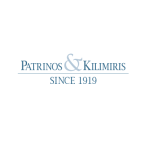In a recent decision, the Athens Full Member Court of First Instance (IP Division) ruled that the successor-in-title of a patent is not entitled to a claim for damages regarding the time period between the patent’s transfer agreement and the corresponding recording thereof in the patent register. In essence, the court dismissed the successors-in-title’s claim for damages for the abovementioned time frame due to lack of legal standing, making it clear that damages can only be sought for the time after a patent transfer has been recorded .
Pursuant to Article 12 paragraph 1 of the Greek Patent Law, the patent can be transferred by written agreement; the transfer is concluded upon the recordal of the written agreement in the patent register and, subsequently, its publication in the Official Gazette.
According to legal theory interpreting the above rule, it is evident that the written form of the assignment agreement is considered to be a constituent part of the agreement, meaning that any agreement not in writing will result in the invalidity of the entire agreement. Furthermore, it develops immediate and inter partes effect. On the contrary, the recordal and subsequent publication of the transfer agreement in the patent register and Official Gazette, respectively, are not considered constituent parts of the agreement, but serve as third party publicity. This means that the transfer agreement can be enforced against third parties only after its recordal and publication, as above indicated. No prior erga omnes effect is provided.
Moreover, as far as licence agreements are concerned, an even more strict wording is found in the law. According to Article 12 paragraph 3 of the Greek Patent Law, the written agreement for the grant of a licence shall be recorded in the patent register and published in the Official Gazette but shall enter into force on the date of its recordal in the Patent Register. In essence, it seems that in this case, both written form and recordal are considered to be essential in order for the licence agreement to be valid.
In view of the above, it is important to record transfer and licence agreements in a timely fashion in the patent register, in order to avoid unpleasant surprises later in the course of litigation.












